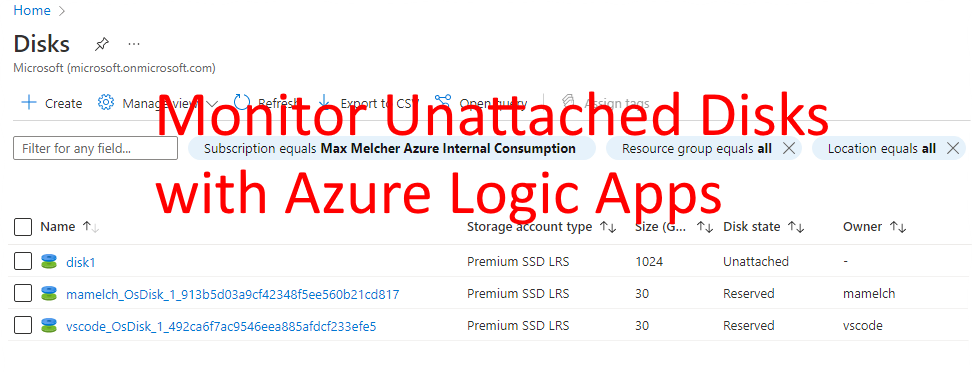
In this post, I will try to summarize the past year and very first year at Microsoft as Cloud Solution Architect in the Customer Success Unit and share some of the highlights with you.
Cloud Solution Architect
In October 2018, after only three weeks of hiring process, I was eager to join Microsoft. I landed my dream job (Cloud Solution Architect) in a dream team with an awesome manager. The role that initially sounded like a lot of marketing and pre-sales, but is very very technical (really!). Even with a ton of Azure knowledge and large-scale project experience, I am learning new stuff daily. Combine that with the Microsoft organizational complexity and - it’s quite some fun!
And I thought, as former MVP, I knew Microsoft in and out!
There are multiple ways to live the role, but now, one year in the role, I help customers on their Azure cloud journey:
- finding the right architecture to solve business as well as technical problems
- bridging the gap between customer and Microsoft product development groups,
prioritizing the right things and communicate customer feedback that matters - evangelizing Azure
- help with pilots
- architecture and whiteboarding sessions
- sharing best practices and new technologies/approaches
- helping onboard new customers and colleagues
And, very important, we do not:
- handle support cases
- write code that is meant for production and is supported for 10 years and all that
- cover every product that Microsoft has to offer
- replace a customer cloud team and/or partner - you need them for production deployments
We now have more than 100 architects working in Germany alone and every person bringing their unique background and perspective into the mix. I enjoy this diversity of skills and ideas and love the everyday exchange in the office. I doubt you’ll find such a highly motivated team of experts anywhere else in Germany!
Customers
Our Mission: Our mission is to empower every person and every organization on the planet to achieve more
Pretty much everything in the Cloud Solution Architect (CSA) role, circles around the customer - ‘customer-centricity’ is what we use internally for that. In other words, we are advocates for the customer, help them get heard in the development teams, be the voice of the customer to our Microsoft product team - and get the most out of Azure.
After joining I landed in the Financial Services and Insurance (FSI) sector, where we focus on all mayor German customers - and talking mayor, all of them are huge and with that have huge challenges in adopting cloud technologies. So if you think that something works great, throw 100.000 concurrent users at it and it will tell you very clearly that there is room for improvement.
While some of the customers have near-zero cloud adoption ambitions, some of them have everything in the cloud - And this is what I like so much! I like the different stages and the great flexibility we have, to help the customers understanding what is required to tackle the next step in cloud maturity.
Always Learning
The Learn-It-All Does Better Than the Know-It-All
In the past year, I have learned so much and there was not a single day where I did not learn or had to learn. And the learning is so embraced and embedded in the company culture that blocking time during my week for learning is totally accepted - we even have organized learning days.
In the following section I want to emphasize that a little more:
Infrastructure
In my past I focused mainly on web-related development technologies - infrastructure topics were not in my comfort zone - but when you scroll through my previous blog posts, you might notice a transition.
This is mainly because my customer has tons of infrastructure-related questions - and with my strong development background I simply could not answer those in-depth - and I had to learn! Most of the time reading our docs was pretty helpful, but working at Microsoft gives you access to much more. Most importantly incredibly smart and helpful colleagues and a short Teams message or mail helped me. And in the end, I could transfer my knowledge to the customer. After about half a year I felt pretty confident with all these networking topics, still need to look up how many IPs are in a /27 subnet though.
In July then I decided to do the AZ-300 (Microsoft Azure Architect Technologies) exam. One of the most realistic exams I encountered so far because it covered the architecture challenges of the past half-year. Good stuff.
Azure Certifications
But the AZ-300 and AZ-301 were not the only certifications I have done in the last year - my default go-to would have been the AZ-203 (Developing Solutions for Microsoft Azure) and AZ-400, and once you are into this learning thing, it did them, too. The AZ-400 was my favorite in this track - simply because it covers so many DevOps-related questions and tasks.
Learning, things other than Azure
So technical skilling and learning are super important - but Microsoft embraces a holistic approach and even the typically quite boring “standards of business conduct” (SBC) are epic. See this thread by clicking on the twitter icon in the top right for more insights about it:
This guy is one of the Hacker Cabal... (it's an inclusive group of evil hackers, all types of people) pic.twitter.com/1uo9ChlERk
— Scott Hanselman 🌮 (@shanselman) July 16, 2018
OpenHack
One of my learning-experience highlights is, again, the so-called OpenHack. I have done two OpenHacks before joining Microsoft, and two in the last year alone. And I can’t stress it enough - if it’s possible for you, go attend one! They are free, fun - and if learning in a small group with a smart proctor on real-world challenges is your thing - then go sign up: https://openhack.microsoft.com/
My OpenHacks covered the following topics:
- DevOps
- IoT + Data
- DevOps (again, customer-specific)
- Containers
And there are more topics:
- Serverless
- Intelligent Bots
- Modern Data Warehousing
- AI-Powered Knowledge Mining
- App Modernization with NoSQL
The container OpenHack was awesome - the exercises made sense and with all this hands-on experience and the smart people that I am now connected with - it makes my life easier. It took you out of the comfort zone, in a good way, and I now feel really at ease answering questions about it without always bothering the container champs (subject matter experts) we have at Microsoft. Kubernetes all the things!
See this post by my colleague Mo and see the setup of the last OpenHack in Munich: https://www.linkedin.com/posts/mohghaleb_openhack-activity-6592384397096300544-TYU1
Speaker Training
And even more learning. Just recently I signed up for an “Massively Open Online Course” (MooC) that’s called “Story Impact” to improve my speaking skills - it was time intensive and in the end, I had to hand in a video recording of me presenting. But well, I feel like it helped me a lot!
Community
When I joined Microsoft, I was worried that I cannot contribute to the community as much as I did back when I was a partner and an MVP. But quite the opposite, some tasks like getting a decent meeting room for a community event is now way easier. So last year we hosted, AzureSaturday Munich, the third time in the Microsoft Office in Munich - and supporting this as an employee was more efficient.
End of November I will support the O365 community and co-organize the next SharePoint & O365 Saturday 2019 - Munich event. Additionally, I spoke at about two or three community events and gave a workshop at Techorama in Belgium - that was great fun!
Closing
I had a very successful and fun first year - and I am looking forward to the next. If you have questions or want to know more about anything at Microsoft, please feel free to put it in the comments down below or send me a message/LinkedIn.
And if you want to become a Cloud Solution Architect at Microsoft yourself, give it a try and apply! We are hiring: careers.microsoft.com
Special mention: I want to thank my manager Nadine, for giving me a chance and for a super awesome year - always taking time and getting things in motion! THANK YOU!
Thanks,
Max
Pictures:
- Photo by freestocks.org
- Photo by Austin Distel










Share this post
Twitter
Facebook
LinkedIn
Email